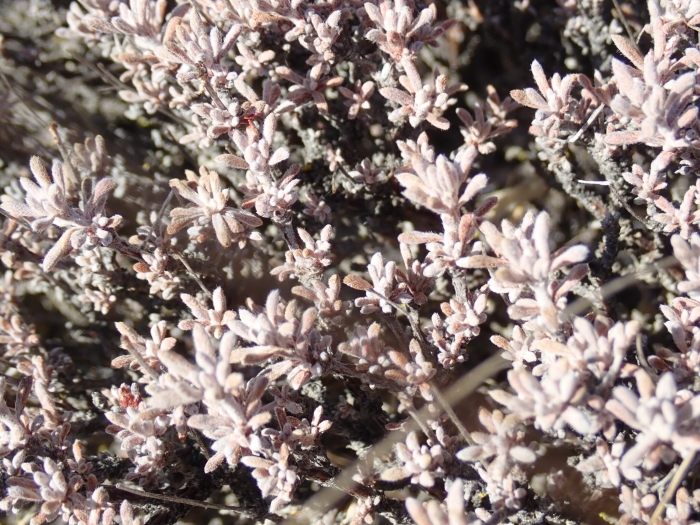Snow Buckwheat
(Eriogonum niveum)
Snow Buckwheat (Eriogonum niveum)
/
/

John Brew
CC BY 4.0
Image By:
John Brew
Recorded By:
Copyright:
CC BY 4.0
Copyright Notice:
Photo by: John Brew | License Type: CC BY 4.0 | License URL: http://creativecommons.org/licenses/by/4.0/ | Rights Holder: John Brew | Publisher: iNaturalist | Date Created: 2018-09-24T16:12:57Z |
















































Estimated Native Range
Summary
Eriogonum niveum, commonly known as Snow Buckwheat, is an evergreen subshrub native to the shrub-steppe and dry mountain slopes of the Pacific Northwest, particularly in Washington and Oregon. It typically grows to a height and width of 40 to 60 centimeters (16 to 24 inches), although it can occasionally reach up to one meter. Snow Buckwheat has a sprawling habit with stems that may grow erect, decumbent, or prostrate, forming a hairy mat. The leaves are primarily clustered at the woody base, and the plant produces an inflorescence of branching stems with clusters of small, showy flowers that can be white, pink, or reddish, blooming in late summer.
Snow Buckwheat is valued for its drought tolerance and adaptability to poor soils, making it an excellent choice for xeriscaping and restoration projects, such as the ’Umatilla’ cultivar used for rangeland restoration and soil stabilization. It thrives in full sun and requires low to medium amounts of water, preferring well-drained soils. While it is not commonly used in ornamental horticulture, its resilience and attractive flowering make it a potential candidate for naturalistic plantings and wildlife gardens. Gardeners should note that it may spread if conditions are favorable, but it is not typically aggressive.CC BY-SA 4.0
Snow Buckwheat is valued for its drought tolerance and adaptability to poor soils, making it an excellent choice for xeriscaping and restoration projects, such as the ’Umatilla’ cultivar used for rangeland restoration and soil stabilization. It thrives in full sun and requires low to medium amounts of water, preferring well-drained soils. While it is not commonly used in ornamental horticulture, its resilience and attractive flowering make it a potential candidate for naturalistic plantings and wildlife gardens. Gardeners should note that it may spread if conditions are favorable, but it is not typically aggressive.CC BY-SA 4.0
Plant Description
- Plant Type: Subshrub
- Height: 1-2 feet
- Width: 0.8-1 feet
- Growth Rate: Slow
- Flower Color: White, Pink
- Flowering Season: Summer
- Leaf Retention: Evergreen
Growth Requirements
- Sun: Full Sun
- Water: Low, Medium
- Drainage: Fast
Common Uses
Bee Garden, Bird Garden, Butterfly Garden, Drought Tolerant, Groundcover, Low Maintenance, Potted Plant, Showy Flowers
Natural Habitat
Shrub-steppe and dry mountain slopes in the Pacific Northwest, particularly in Washington and Oregon
Other Names
Common Names: Snow-Buckwheat, Snow Wild Buckwheat, Ériogone Des Neiges
Scientific Names: , Eriogonum niveum, Eriogonum dichotomum, Eriogonum niveum var. candelabrum, Eriogonum niveum var. suksdorfii, Eriogonum decumbens, Eriogonum niveum var. dichotomum, Eriogonum strictum var. lachnostegia, Eriogonum album, Eriogonum dichotomum var. humile
GBIF Accepted Name: Eriogonum niveum Douglas ex Benth.